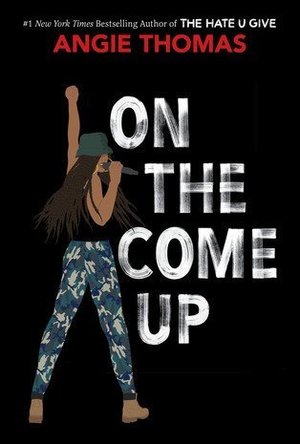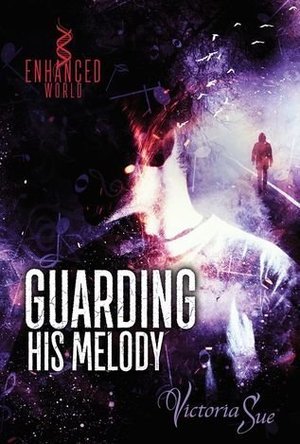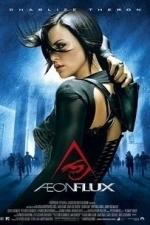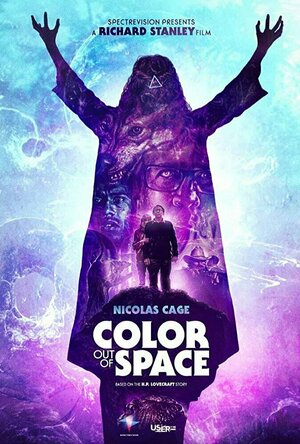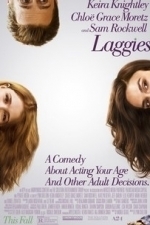
FlyMaps | 3D Maps + Wikipedia
Navigation and Travel
App
FlyMaps uses 3D maps to visit cities around the world. Including more than 200 cities and places....

Toca House
Education and Entertainment
App
Welcome to Toca House! Help the five friends to do fun chores around a cosy house. Let your kids...
Kristy H (1252 KP) rated On the Come Up in Books
Apr 4, 2019
"I'm a hoodlum from a bunch of nothing."
Bri is a wonderful character--a realistic teenager struggling with her love life and school, as well as the systematic issues of poverty, racism, drug dealing, and more facing her neighborhood, peers, and family. She's severely affected by what happened to her parents: the death of her father, who is famous in the Garden, and her mom's past drug use. The book does a great job of showing the pressures on everyone in Bri's family--her older brother went to college, but is back, living at home and working in a pizza shop, trying to help his mom out. Her mom is still paying for her past sins: trying to get a job isn't easy, nor is it easy to keep the faith of your teenage daughter, who calls her mom by her first name. And Bri--well she wants to become a rapper and earn money to get her family out of poverty. As such, she doesn't always make the best choices. And, to her, it almost seems like rapper is the only choice for freedom.
"That's how it goes though. The drug dealers in my neighborhood aren't struggling. Everybody else is."
Don't get me wrong, though. While this book is beautiful and does such a great job at showing so many of the challenges facing Bri and the Garden's community, it's also an engaging and funny read. As I said, Thomas is such an amazing writer. The church scenes in this novel are priceless: I was laughing at loud at some points. And Bri is just so vivid in her characteristics. She's a self-proclaimed "nerd" who loves things like Star Wars and some of her references and jokes in the books are just hilarious.
The supporting cast in this one is great--Bri's brother, her friends (including a gay BFF!), Aunt Pooh, the church biddies, and more. They all jump off the pages just like Bri. Much like THUG, this is a story of family at its core and even if you'll want to shake Bri for some of her bad decisions, it's pretty much impossible not to love her, her family, and her friends.
Overall, I really liked this book. It's well-written, tackles some serious topics in a great way, and yet is funny and poignant as well. I highly recommend it. 4+ stars.
Debbiereadsbook (1650 KP) rated Guarding His Melody (Enhacned World #1) in Books
Sep 25, 2018
This is billed as book 1 in the Enhanced World Standalones series, but you don't need to have red the 3 books in the main series, before this one. I have listened to book one, Five More Minutes, and am currently part way through book two, Who We Truly are and will get to Beneath This Mask after that. Mild spoilers, is all. and a hint at what I have to come.
After getting meningitis as a child, Seb is left deaf. Throw in mark of the Enhanced that appeared when he was 12, and life has thrown him a double whammy. When there are death threats, Seb hires Gray as a bodyguard. But the Threat is getting worse, after the death of his previous bodyguard and that of his music teacher. If Seb could shake these crippling headaches, and just play his piano, he'll be happy.
I'm really enjoying these books! They are different and different is always good in my book!
Seb is pretty much housebound, but the first thing Gray does, is drag him out of bed at stoopid o'clock to do Tia-Chi in the garden. Helped him, so gotta be worth a try, right?? And that there, is what I particularly LOVED about this book.
The HINTS at what Gray suffered. You don't get the FULL story, not at all, just hints and clues along the way that make you put together a picture, a bigger picture at what Gray suffered, HOW much he suffered and how he got through it. But you just know, that someone else will put together a different picture, with the same clues. And I LOVED that!
Seb's threat isn't who I thought it was, but it was just as bad. I do love being proven wrong!
The chemistry between Gray and Seb bubbles along for much of the book, and I did, at one point, think we wouldn't get to the main event, but we do, and it is glorious!
Talon and Finn (Five Minutes Longer) pop up at the end, and the others are mentioned at various places in the book, so ties the books together.
The Enhanced status of Seb plays very much second fiddle to his deafness.
But I'm not left wanting to LISTEN to this book. Nick J Russo narrates the other books, and I hope he does this one too. I'm eager to see how Seb's voice comes across.
I originally wrote 4 stars at the top of the page (and yes, i do WRITE them up by hand before I post them!) but, actually, I can't find anything to knock that star off, so...
5 full stars!
**same worded review will appear elsewhere**
Darren (1599 KP) rated Aeon Flux (2005) in Movies
Jun 20, 2019
Actor Review
Charlize Theron: Aeon Flux deadly assassin who is assigned to kill Trevor Goodchild, but when she has a past connection with him she helps him uncover a truth that can change the future forever. Solid performance trying to make something out of a little known source material. (7/10)
aeon
Marton Csokas: Trevor Goodchild leader of the people who has cured the remaining people of a deadly virus but he is still working to uncover a truth that could save the peoples real future. Good performance in the supporting scientist role. (7/10)
trvor
Johnny Lee Miller: Oren Goodchild brother of Trevor who has always supported him but when the future could change he plans to take over and keep things running as before. Good villainous role wanting to make sure he can live forever. (7/10)
ohnny
Director Review: Karyn Kusama – Creates a basic entertaining film that never really challenges the audience. (5/10)
Action: Plenty of action but most is the same each time. (7/10)
Sci-Fi: Interesting look at the future after a virus that looks at many different parts of it including improving surviving. (7/10)
Settings: We are in one city for the whole film but it really doesn’t get used as well as it should have been. (6/10)
Special Effects: Basic special effects used in Aeon Flux with most of it being upgraded technology. (7/10)
Suggestion: I think this could be tried, it isn’t as good as it could be but can be entertaining at times. (Try It)
Best Part: Aeon entering a poisonous garden.
Worst Part: Been here seen that.
Action Scene Of The Film: Final battle
Believability: No (0/10)
Chances of Tears: No (0/10)
Chances of Sequel: No
Post Credits Scene: No
Oscar Chances: No
Box Office: $52 Million
Budget: $62 Million
Runtime: 1 Hour 33 Minutes
Tagline: The future is flux.
Overall: Fun but not original action
https://moviesreview101.com/2014/11/16/aeon-flux-2005/
Emma @ The Movies (1786 KP) rated Color Out of Space (2019) in Movies
Feb 8, 2020
The Gardners are settling into the secluded family home nicely, no city hustle and bustle to bother them. That peaceful life is shattered when a curious meteorite crashes into their garden. Far from a normal bit of space debris, the rock seems to be changing everything around it. It's taking over, the plants, pace and time, even the family themselves.
Briefly hearing Richard Stanley before this screening made me feel this adaptation of Lovecraft's work of the same name was in good hands, he clearly has an appreciation for what he's was working on and the imagery he creates makes for incredible viewing.
So, straight to Nic Cage... he doesn't quite go full Cage, but he's pretty close. It's the usual insanity we've all come to love.
This film is a little crazy on many levels, the family as a whole are very off before we even get to the magical meteorite. Each member seemingly has their own little corner of crazy town mapped out, and yet when you look at them as a whole you'd wouldn't put them in the same family.
As the film progresses and things get even more bizarre the family feel even less connected than at the beginning. The alien influence is pushing them further apart, but on top of that the script falls away in the middle and chaotic devolving of sanity replaces it. Each member of the family has their own experience with the meteorite, apart from chaos and the underlying cause none of it feels connected.
To say it plainly, there's some really messed up stuff. I would love to see how some of it was achieved because if Richardson is doing half the things it appears she is then she deserves some kind of award. I've got the short story to read so I can compare the two because honestly I can't visualise the written version of this story.
The creatures that evolve are made to be terrifying, and they do scare, but the comedy moments that come through from the performances (mostly unintentionally I guess) detract from it being all that shocking.
Our meteorite has a great influence over the sets for most of the movie, the colours and the growth are used to good effect. The progression is clear and well balanced, it might not always look realistic but the fact that that's the point helps.
When you look at Color Out Of Space as a whole it's all over the place, interesting but ambling, understandable and confusing. Despite that, it's an experience that I enjoyed having.
Originally posted on: https://emmaatthemovies.blogspot.com/2020/02/color-out-of-space-movie-review.html
Gareth von Kallenbach (980 KP) rated Laggies (2014) in Movies
Aug 6, 2019
While watching Laggies, I realized it has some pacing issues. At a 99 minute runtime it felt closer to two hours than a quick and entertaining story it should have been. While walking out the theater I thought that was the intent of the film and was a bit forgiving. Megan doesn’t exactly know where her life is going and neither do we. However as the days passed after watching this film, I realized these pacing issues made like this film less and less each day.
As the days passed, something else I realized was that Keira Knightley is not a leading lady. Her performance was boring, uninteresting and at times unlikable for a character that could have had layers, but did not. It made it hard to understand why she was doing the things that she was doing and why she ultimately comes to the conclusions she does. She seems like she is a 14 year old girl who “doesn’t talk” and we are supposed to look at her “British” smile and understand her without any acting to shed insight on her thoughts, which is actually annoying.
However her younger counter part, Chloe Grace Moretz (Kick Ass), shows yet again how she is a strong up and coming actress who has a good range already. She is believable as self-reflective and brooding 16 year old who is hoping and looking for something more for herself and her father played by Sam Rockwell (Moon). Rockwell reminds audiences yet again how solid an actor he is. He is actually the brightest star in this film as he steals every scene he is in and even manages to elevate Knightley to be likeable and attractive.
In the end, this film is not worth the full price of admission. It is more of a red box or film you may pause and watch when it comes on cable. Moretz and Rockwell are the bright spots of this film and fans of them may want to check this out, however Knightley is not a leading lady and this film suffers from her poor performance and an abruptly Hollywood script.

Girl's Life Craft: Shopping & Dancing
Games and Entertainment
App
Crafting game for girls! Girls craft, exploration, party, dating, shopping and spa salon in one...

Newman’s Birds of Southern Africa
Reference and Lifestyle
App
KEY FEATURES • Includes over 1000 high quality photographs. • Universal app, pay once and get...

100 Yoga Spa Relax Music
Health & Fitness
App
100 Yoga Spa Relax Music - The Greatest Yoga,Spa,Meditation,Healing and Manifestation Collection...
